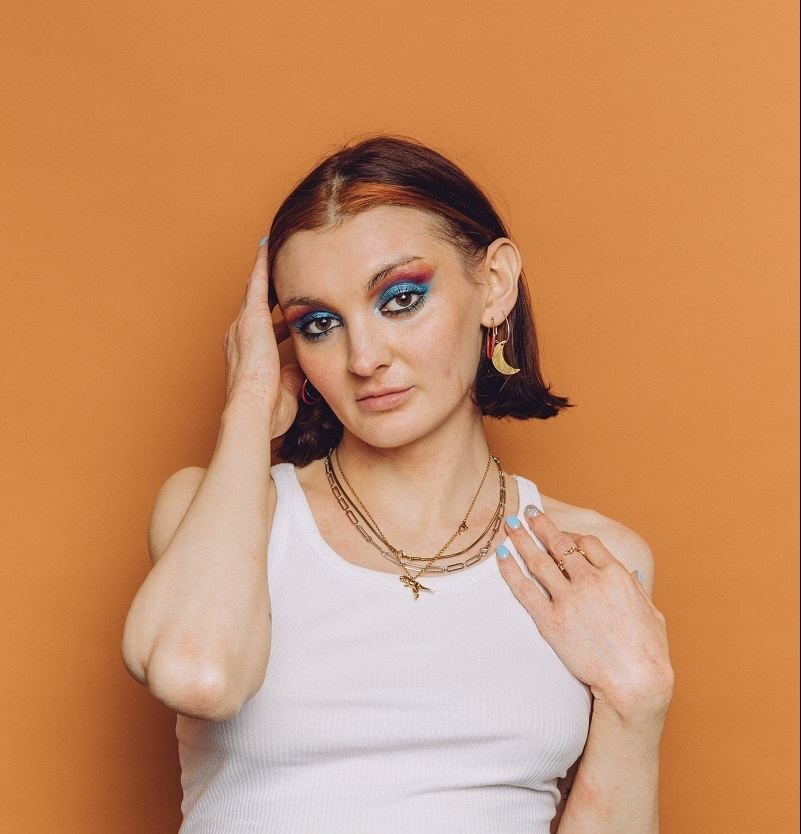This ‘International Transgender Day of Visibility’, I have been contemplating the use of the word ‘visibility’ and how we often use it in conjunction with advocacy. It’s an encouragement to be proud of our identity. It’s an encouragement to speak out and reach those who feel alienated. It’s an encouragement to forefront trans and non-binary people to demonstrate our humanity, our depth and our unique voices.
However, visibility isn’t always an end goal. In recent months, it has felt increasingly dangerous to publicly identify as transgender. Our identities increasingly divisive in politics, our healthcare scrutinised, our community dehumanised, criminalised and marginalised.
Considering less than 1% of the world’s population identify as trans+, we remain remarkably visible as a minority, being used as a scape-goat in electoral campaigns or villainised by certain radical feminists as if we are the ones to blame for women not feeling safe in patriarchal society.
I’ve seen far too many trans+ people hang their heads low, walking faster through crowds, wearing all black so as not to stand out. Or even trying to change their appearance in attempt to reach comfortable invisibility, hiding from the preying eyes of a transphobic lens that our cisgendered peers are conditioned into. Visibility isn’t always comfortable. It’s exhaustingly vulnerable and even scary at times, particularly when the very sight of you is socialised as dangerous, political or inhuman, but that doesn’t mean it’s not important.
It’s not just my differences that became visible, but also my pain. I wore my skin like a story.
In recent years, I have begun to feel somewhat invisible, particularly in queer spaces. Not any aggressive, deliberate erasure, just a sense that eyes pass over me blankly. The more cis-passing I became, the more I seemed to disappear. It’s easy for our brains, hard wired in self-destruction, to internalise this as insecurity, telling ourselves we’re not attractive enough, or unimportant. I started to change the way I dressed, experimenting with louder fashion, trying for the first time to outwardly express my queerness in hopes to once again find acceptance and visibility in queer spaces.
Nothing seemed to change how I was perceived. Jealousy began to prickle at the corners of my being, as I’d watch how the more gender non-conforming of our community would exist in queer spaces with such belonging, such pride, such desirability, such confidence in their identity. I felt like an imposter each time I tried to claim the labels that previously brought so much shame.
Then last summer, I surrendered to the reality that I had to face my visible difference. I was dependent on topical steroids for the entirety of my adult life to try to minimise the symptoms of eczema that have plagued me since birth, but it just caused my condition to worsen with each application. Claimed by a scarlet veil, I succumbed to months of head-to-toe redness, flaking skin, swelling and a crown of crusted scabs. I began to feel anything but invisible. Every time I entered a shop, I could feel eyes lingering, pondering what was wrong with me, what I was, how I could wear my differences with such acceptance.

Anthony found power in her visibility when going through Topical Steroid Withdrawal.
There is a power in visibility. It’s not just my differences that became visible, but also my pain. I wore my skin like a story. Each scar, a tale of an agonising, sleepless night. The atlas of red skin, mapping the strength needed to carry my healing form to the local supermarket. I found a confidence and a pride in my differences because they demonstrated the difficulties I overcame, when they previously lay unseen. If people stared, I would smile. If people made comments, I would thank them. Their fear, their discomfort, their shame was a reflection of the suppression and expectations they inflict upon themselves.
It became evident as to what I had been jealous of when I had longingly observed the beauty in the visibly trans+ members of our community. It was an envy at their acceptance of being different. Before I had become cis-passing, I resented the eyes that scrutinised my existence. I lived in fear of furtive smiles shared amongst school kids, as I walked past them hiding my face. I wished so badly to be cis-gendered and invisible, so I never had to feel paranoid that the person serving me at a checkout would be analysing my face for evidence of my genitalia. I didn’t allow myself the space for pride. I wished so badly that I wasn’t trans, it meant I never sought out the spaces where transness felt like a superpower, an identity and a blessing, and it is that triumphant visibility that I wish to celebrate on this ‘Trans Day of Visibility’.
Invisibility is a privilege. I hadn’t noticed how much more easily I walked through the streets, as hormones began to soften my features and my hair grew out to match that of my cisgendered girlies. The anxiety had faded so slowly, I began to forget the constant fear that existed in me every time I was acknowledged by eyes I didn’t trust. I may have been jealous of the space that gender non-conforming people took up in queer spaces, but it’s so deserved. I can leave that club and walk down a street unnoticed. Yes, I may not be the most gorgeous human, but at least I’m not battling the very real threat of hate-crimes and violence for purely existing in my skin.
I live in gratitude since understanding these valuable lessons about pride and privilege. I may have not allowed that radical acceptance and confidence in when I was visibly trans, but I allowed it all back in when eyes once again began to settle in confusion on the scars of my skin condition.

